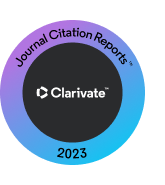The Brazilian State Water Resources Councils: diagnosis of civil society participation through criteria of access to information, parity, and decision-making procedures
DOI:
https://doi.org/10.5327/Z2176-94782136Keywords:
collegiate bodies; water management; democracy.Abstract
The aim of the article was to investigate whether the Brazilian State Water Resources Councils, including the Federal District, ensure civil society participation through access to information, parity, and decision-making procedures. In this context, verification criteria were selected, with maximum score of 1 point assigned based on their suitability for the Councils, which were classified in terms of participation adequacy. The states that were deemed suitable, in descending order, were: Paraíba (1st position), Mato Grosso do Sul, Minas Gerais, and São Paulo (2nd position), Amazonas, Pará, Paraná, Rio de Janeiro, Rio Grande do Sul, Rondônia, and Santa Catarina (3rd position), Bahia, Ceará, Federal District, Espírito Santo, and Mato Grosso (4th position), Rio Grande do Norte and Tocantins (5th position), and Alagoas (6th position). The states deemed unsuitable were: Acre and Pernambuco (7th position), Piauí and Roraima (8th position), Goiás and Sergipe (9th position), and Amapá and Maranhão (10th position). As for the criteria, the ones that scored the highest were: the presence of the website and Internal Regulations of the Councils, decision-making by the Council in plenary sessions, the presence of Meeting Minutes on the website, identification of the Technical Chambers of the Councils on these channels, adherence to the regular meeting schedule, identification of the members who make up the Councils, and parity among the three sectors that constitute them. It was concluded that the State Water Resources Councils need to ensure equal participation for civil society members in their discussions and deliberations as well as provide public access to the information generated.
Downloads
References
Akerboom, S.; Craig, R.K., 2022. How law structures public participation in environmental decision making: a comparative law approach. Environmental Policy and Governance, v. 32, 232-246. https://doi.org/10.1002/eet.1986.
Alegría, D.C., 2024. If there’s no support, we don’t advance: Emerging environmental democratization in water pollution governance in Lake Titicaca, Peru. Geoforum, v. 149 (103964), 1-13. https://doi.org/10.1016/j.geoforum.2024.103964.
Bobbio, N., 2017. O futuro da democracia: uma defesa das regras do jogo. Paz e Terra, Rio de Janeiro.
Bourblanc, M., 2010. Social participation in water governance and management: critical and global perspectives. Water Resources Development, v. 26 (4), 709-713. https://doi.org/10.1080/07900627.2010.520916.
Brasil, 1988. Constituição da República Federativa do Brasil. Diário Oficial da União, Brasília.
Brasil, 1997. Lei nº 9.433, de 8 de janeiro de 1997. Diário Oficial da União, Brasília.
Brasil, 2011. Lei nº 12.527, de 18 de novembro de 2011. Diário Oficial da União, Brasília.
Carr, G.; Blöschl, G.; Louks, D.P., 2012. Evaluating participation in water resource management: a review. Water Resources Research, v. 48 (11), 1-17. https://doi.org/10.1029/2011WR011662.
Ciesielczuk, J.; Porras, G.L., 2021. Public participation and the Escazú agreement: Implementation challenges for vulnerable groups amid a global pandemic. IUCN AEL Journal of Environmental Law, (11), 12-33.
Di Marco, A., 2023. Water democracy under European Union law: Requiring participatory services management. Utilities Policy, v. 84 (101648), 1-10. https://doi.org/10.1016/j.jup.2023.101648.
Fontaine, G.; Carrasco, C.; Rodrigues, C., 2022. How transparence enhances public accountability: The case of environmental governance in Chile. The Extractive Industries and Society, v. 9 (101040), 2-14. https://doi.org/10.1016/j.exis.2021.101040.
Habermas, J., 1997. Direito e democracia: entre facticidade e validade. Tempo Brasileiro, Rio de Janeiro, 354 p.
Habermas, J., 2014. Mudança estrutural da esfera pública: investigações quanto a uma categoria da sociedade burguesa. Tempo Brasileiro, Rio de Janeiro, 543 p.
Ituarte-Lima, C.; Mares, R., 2024. Environmental democracy: Examining the interplay between Escazu Agreement’s innovations and EU economic law. Earth System Governance, v. 21 (100208), 1-13. https://doi.org/10.1016/j.esg.2024.100208.
Malheiros, T.F.; Prota, M.G.; Pérez-Rincón, M.A., 2013. Participação comunitária e implementação dos instrumentos de gestão da água em bacias hidrográficas. Revista Ambiente & Água, v. 8 (1), 98-118. https://doi.org/10.4136/ambi-agua.970.
Mesquita, F.G., 2018. Os comitês de bacias hidrográficas e o gerenciamento integrado na Política Nacional de Recursos Hídricos. Desenvolvimento & Meio Ambiente, v. 45, 56-80. https://doi.org/10.5380/dma.v45i0.47280.
Muller Neto, J.S.; Artmann, E., 2012. Política, gestão e participação em Saúde: reflexão ancorada na teoria da ação comunicativa de Habermas. Ciência & Saúde Coletiva, v. 17 (12), 3407-3416. https://doi.org/10.1590/S1413-81232012001200025.
Muttaqin, T.; Soraya, E.; Dharmawan, B.; Laraswati, D.; Maryudi, A., 2023. Asymmetric power relations in multistakeholder initiatives: insights from the government-instituted Indonesian National Forestry Council. Trees, Forests and People, v. 12 (100406), 1-7. https://doi.org/10.1016/j.tfp.2023.100406.
Néris, M.C.N.; Pizella, D.G., 2022. A participação do segmento sociedade civil no conselho estadual de recursos hídricos do estado de São Paulo. Revista Gestão e Sustentabilidade Ambiental, v. 11 (2), 32-50. https://doi.org/10.59306/rgsa.v11e2202232-50.
Ordoñez, S.R.H., 2020. Los Nuevos Derechos de Acceso em materia ambiental: el caso del Acuerdo de Escazú. Estudios en Derecho a la Información, v. 1 (9), 113-132. https://doi.org/10.22201/iij.25940082e.2020.9.14281.
Organización de las Naciones Unidas para la Educación, la Ciencia y la Cultura (UNESCO), 2024. El acceso a la información ambiental en América Latina y el Caribe: síntesis de decisiones de órganos garantes y jurisprudencia seleccionada. UNESCO, Montevideo, 56 p.
Peixoto, F.S.; Soares, J.A.; Ribeiro, V.S., 2022. Conflitos pela água no Brasil. Sociedade & Natureza, v. 34, 1-13. https://doi.org/10.14393/SN-v34-2022-59410.
Pickering, J.; Hickmann T.; Backstrand, K.; Kalfagianni, A.; Bloomfield, M.; Mertf, A.; Ransan-Cooper, H.; Lo, A.Y., 2022. Democratising sustainability transformations: assessing the transformative potential of democratic practices in environmental governance. Earth System Governance, v. 11 (100131), 1-14. https://doi.org/10.1016/j.esg.2021.100131.
Shearman, D.J.C.; Smith, J.W., 2007. The climate change challenge and the failure of democracy. Praeger, Westport, CT.
Silva, C.V.; Silva, D.F.L.; Souza, E.M., 2013. A participação da sociedade civil na democratização do setor de saúde no Brasil. Revista Brasileira De Educação Médica, v. 37 (2), 254-259.
Suman, A.B., 2021. Citizen sensing from a legal standpoint: legitimizing the practice under the Aarhus Framework. Journal for European Environmental & Planning Law, v. 18 (1-2), 8-38. https://doi.org/10.1163/18760104-18010003.
Published
How to Cite
Issue
Section
License
Copyright (c) 2024 Revista Brasileira de Ciências Ambientais

This work is licensed under a Creative Commons Attribution 4.0 International License.

























